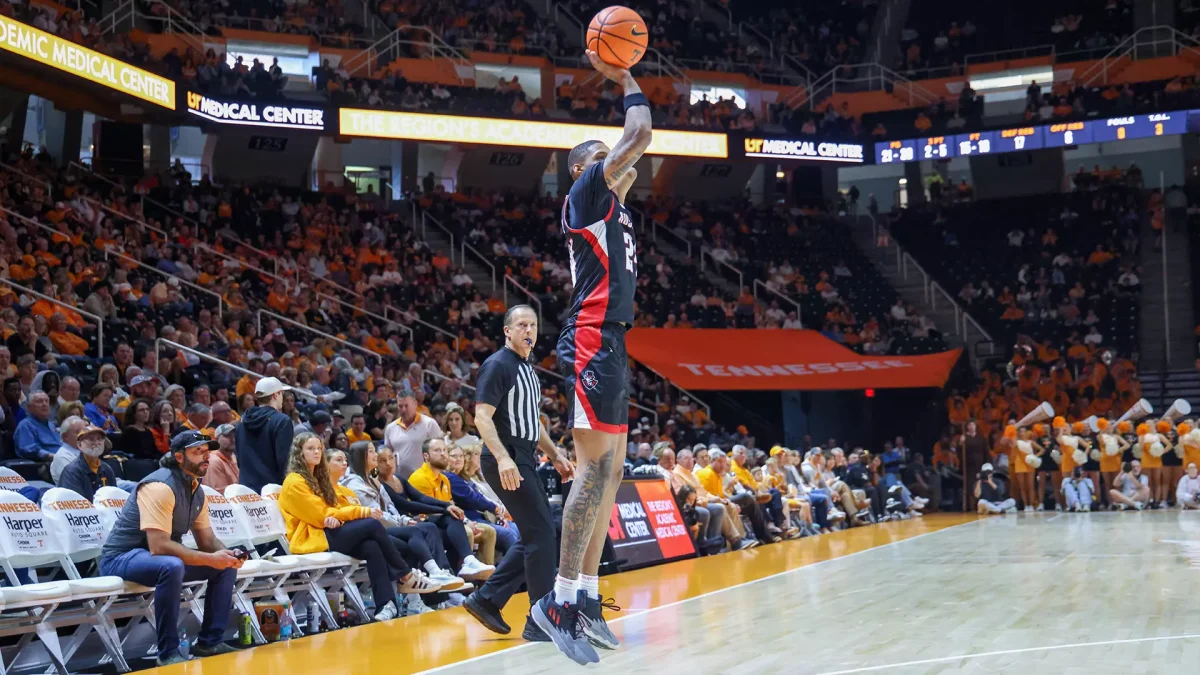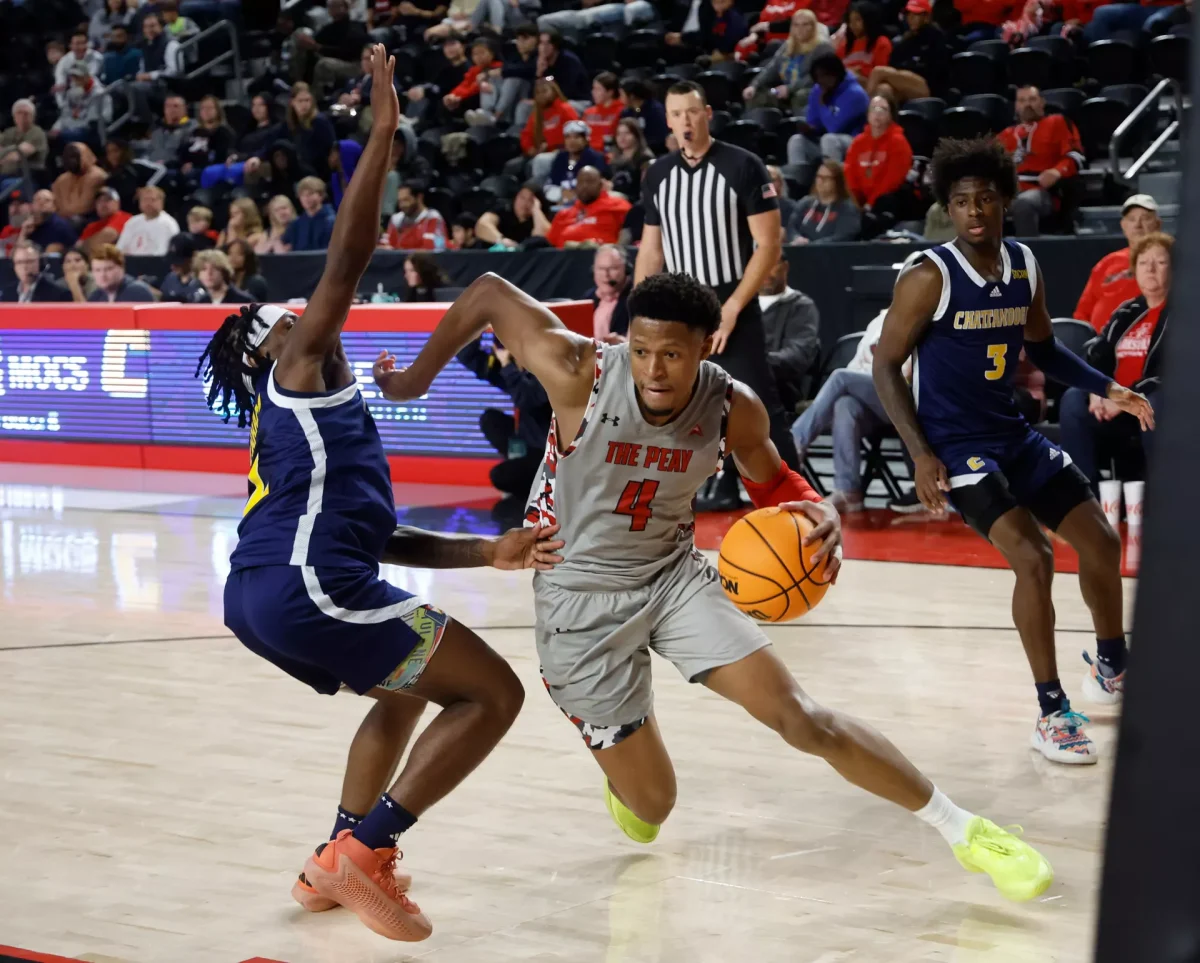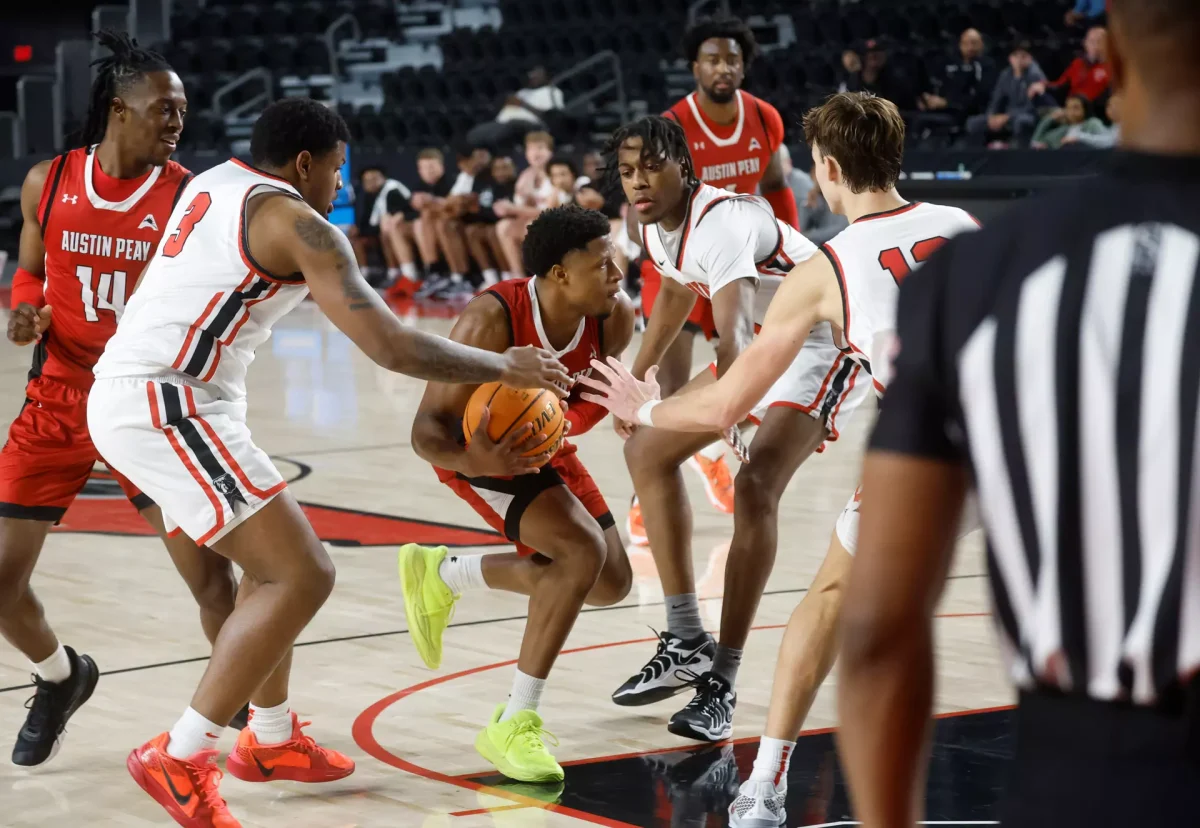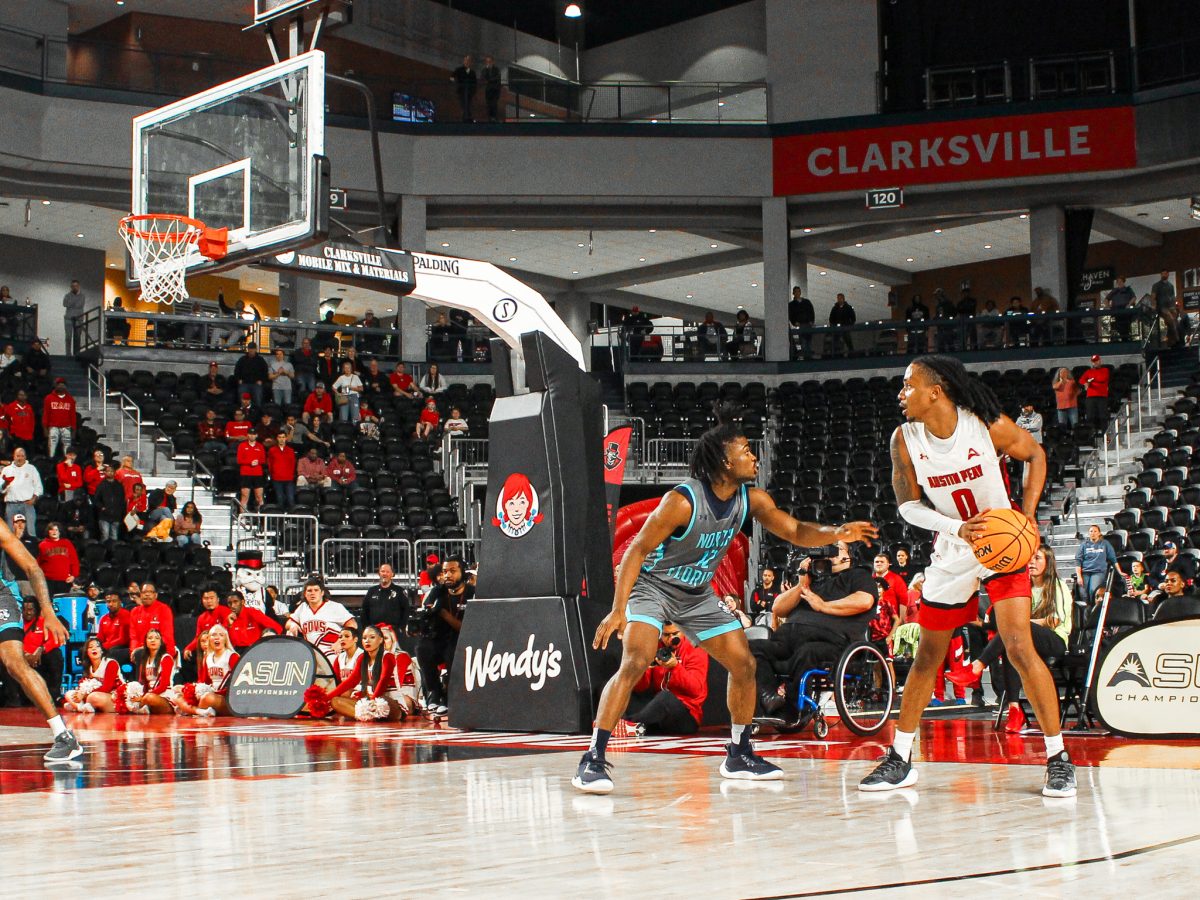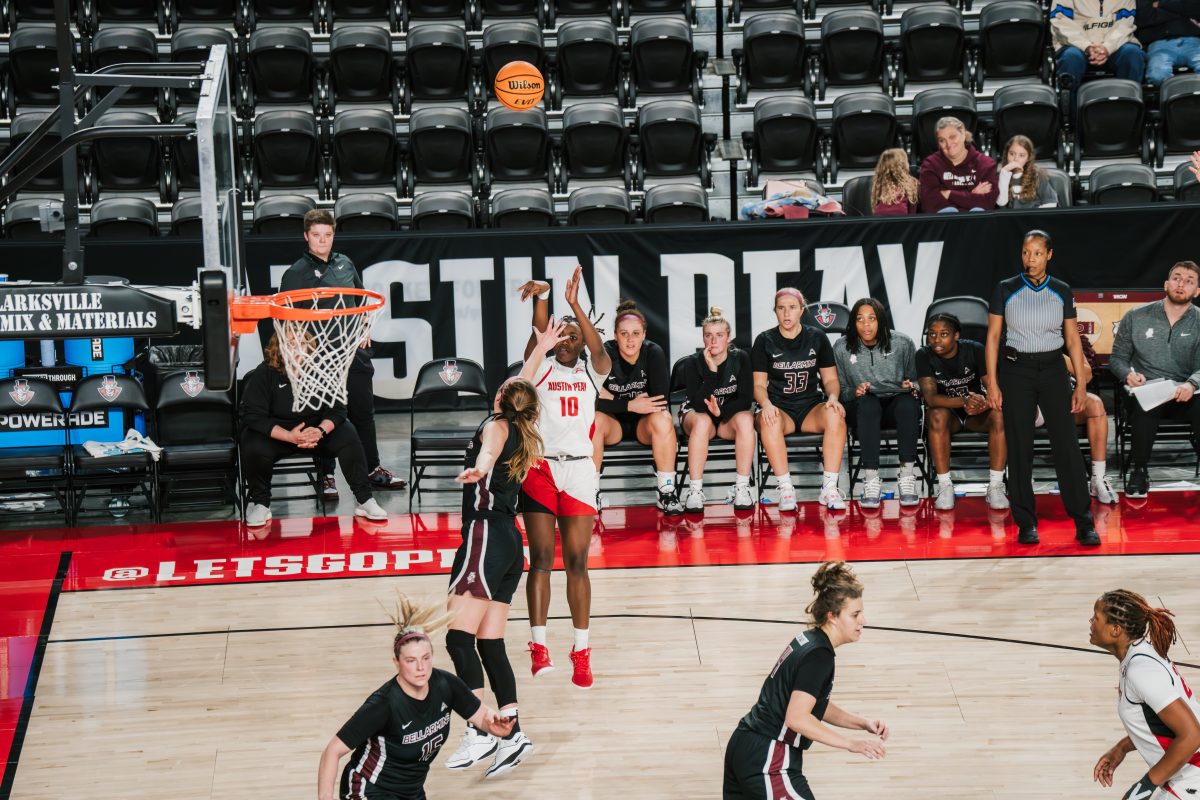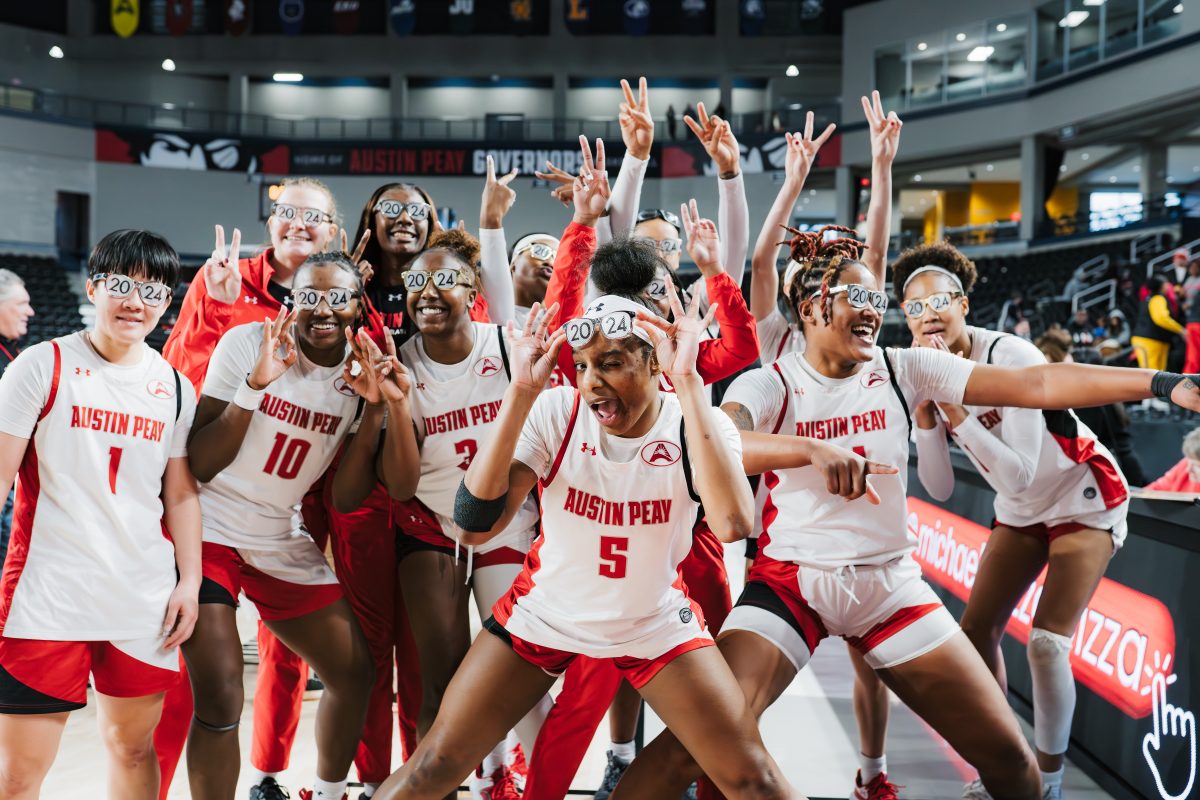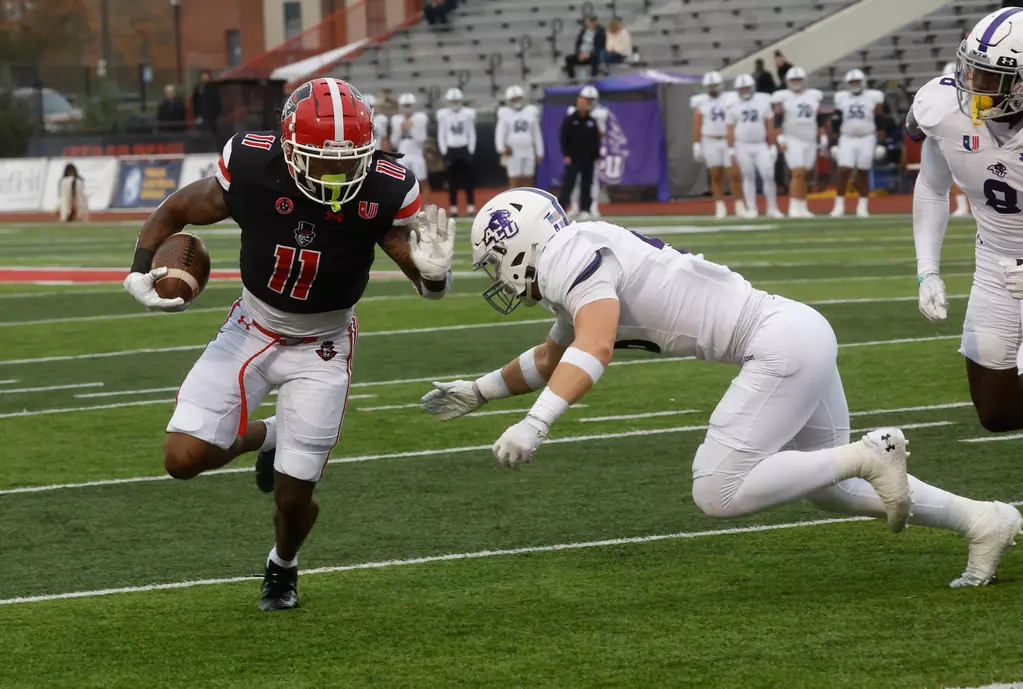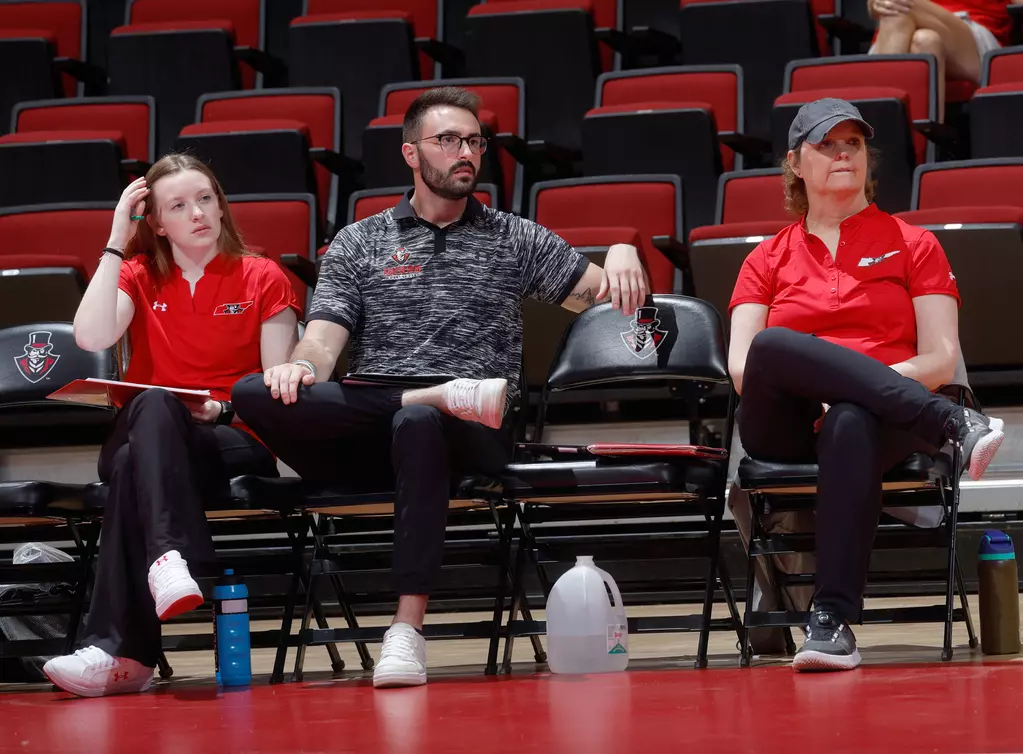Throughout the history of APSU athletics, countless individuals have played a vital role in paving the path for today’s student-athletes.
While their story may not be known to current students, their legacy should never become forgotten. The All State now highlights the career of one of APSU’s most underrated student-athletes, Derek “DJ” Wright.
Coming out of Dominguez High School in Compton, Calif., Wright had offers from schools such as Saint Mary’s and Western Kentucky. However, the 2004 McDonald’s All-American nominee decided to trade the bright lights of Los Angeles for the southern hospitality of Clarksville, Tenn. After being told by legendary head coach Dave Loos that he would come in and play right away, Wright knew exactly where he should go—and the rest is history.
In his first season for the red and black, Wright averaged 3.2 points a game, appearing in all 32 games and starting in 15. APSU would reach the OVC championship game for the first of three times in Wright’s career, but fell to Eastern Kentucky 46-52.
There are numerous things that set DJ Wright apart from those who have played under Loos: his takeaway ability — Wright’s 228 career steals still ranks first in the record books — and his playmaking — his 467 career assists currently ranks third all-time — stand out, but what separates him is his steady improvement throughout his career.
Wright increased in nearly every statistical category – from points, made and attempted free throws, games started and about everything in between—each year of his career.
In his senior season as a Gov, Wright helped APSU capture their second-straight regular season title and defeated Tennessee State in the championship game. After the season, he was named to the All-OVC Second Team and went on to begin an extended professional career.
Wright played 10 years overseas. In his journeys that took him to countries such as Italy, Greece, Germany, Czech Republic, Romania, Switzerland and Bulgaria, he was able to accomplish much on the court, including playing in a gymnasium in Germany that his father used to play in.
“We moved to Germany when I was five because my dad was in the military. My dad was playing for the Army’s team and he played in Nuremberg and I actually had a chance, when I was in Germany, to visit that same gym and play in that same gym that my dad did when I was five,” Wright said. “It just brought flashbacks back to my dad playing and me sitting in the bleachers with my mom and my sister watching him play.”
Two years ago, Wright retired from his playing days after being diagnosed with necrosis, which led to a piece of his hip deteriorating and him needing arthroscopic surgery to fix it. Since retiring to the states, Wright has become a graduate assistant at Arizona State under head coach Bobby Hurley.
While he has not been down to Clarksville much since his APSU Athletics Hall of Fame induction last year, DJ says that he still stays in contact with the current roster, making sure they know that they can use him as a resource during and after their playing career at APSU is over.

When asked how many of his former teammates that he still talks to, Wright said he keeps in touch with about 10 of them every day. He also went on to mention that he and seven of his former teammates have recently started a business called Govs Group, where they invest in homes.
Wright’s teams featured players such as Drake Reed, Wes Channels, Maurice Hampton and Todd Babington just to name a few, but the backbone behind their teams was the community.
APSU was at its peak midway through the first decade of the 2000’s, and Clarksville was there supporting them every step of the way. Wright explained the importance of having the backing of the community and expressed his desire in wanting the program to get back to that point.
“I just tried to do as much as I can to help the program,” he said. “We did things to bring fans to the games. We were in the community. You would rarely see one of us alone: we would go to the skating rink or we would go to the mall together. Just doing a lot of things for the community that brought us fans.
“We would hang out with all the frats and all of the sororities. The ADPI’s would have mixers and we would go there or go to the football games. All of that stuff matters when it comes to people loving you and people supporting you and coming to your games and wanting what is best. On top of that, we were winning, and we were an exciting team to watch. I just want that for Austin Peay, I want it to get back to that.”
DJ Wright was not the type of player who would go out and drop 30 points every contest, that’s just not the way the team worked. Every player had a role and played it to the best of their ability every night.
“I know for sure I could have averaged way more points if I wanted to shoot the ball, but that wouldn’t have accumulated to all of the wins I have on my resume,” Wright said. “That would not have helped me in any kind of way succeed.
“What I brought to Austin Peay is all I cared about and that was victories, like championships, and that is all I can ask for. My teammates love me and we were all able to experience that ourselves. A lot of the guys that are up there, though [with their jersey retired]…they don’t have more wins than us.” Wright said, jokingly.
Wright’s playing career at APSU ended in 2008 with 75 wins, but his impact is still felt by the community today. Without his unselfishness, determination and love for the community, who knows what the program would look like today.


